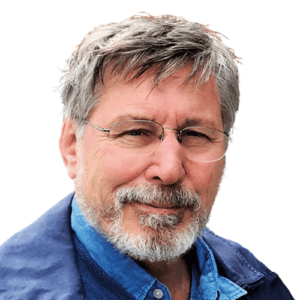How do you find community in the midst of physical distancing? However you can. In this clip from the 2020 Networker Virtual Symposium, trauma expert Bessel van der Kolk shares how he’s maintaining social connections, offers a few tips, and explains what attachment and trauma research tells us about the importance of staying connected during times of crisis.
“Perhaps the most important contribution the therapy world, including the field of trauma, can make to the wider culture is to give people greater access to their innate self-regulatory systems,” van der Kolk says in his Networker article. “The way that they move, breathe, sing, interact with each other [allows them to] discover their natural resources to regulate themselves in a different way, especially when life gets challenging.”
Bessel van der Kolk
Bessel A. Van der Kolk, M.D., is a clinician, researcher and teacher in the area of post-traumatic stress. His work integrates developmental, neurobiological, psychodynamic and interpersonal aspects of the impact of trauma and its treatment. Dr. van der Kolk and his various collaborators have published extensively on the impact of trauma on development, such as dissociative problems, borderline personality and self-mutilation, cognitive development, memory, and the psychobiology of trauma. He has published over 150 peer reviewed scientific articles on such diverse topics as neuroimaging, self-injury, memory, neurofeedback, Developmental Trauma, yoga, theater and EMDR.
He is founder of the Trauma Center in Brookline, Massachusetts and president of the Trauma Research Foundation, which promotes clinical, scientific and educational projects. His 2014 #1 New York Times best seller, The Body Keeps the Score: Brain, Mind, and Body in the Treatment of Trauma, transforms our understanding of traumatic stress, revealing how it literally rearranges the brain’s wiring – specifically areas dedicated to pleasure, engagement, control, and trust. He shows how these areas can be reactivated through innovative treatments including neurofeedback, somatically based therapies, EMDR, psychodrama, play, yoga, and other therapies.












